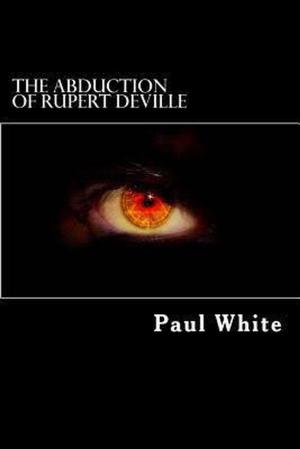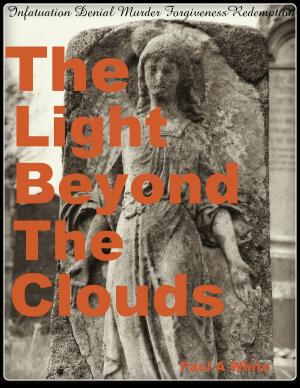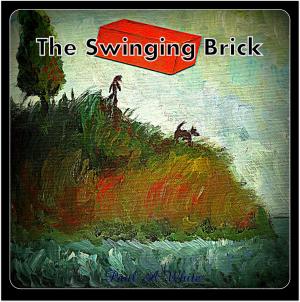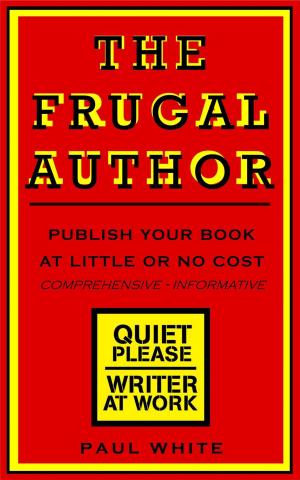Assassin’s Creed: Brotherhood Superbook Guide
Nonfiction, Entertainment, Games, Video & Electronic, Computers, Entertainment & Games, Video & Electronic Games| Author: | Paul White | ISBN: | 1230000208215 |
| Publisher: | Paul White | Publication: | January 8, 2014 |
| Imprint: | Language: | English |
| Author: | Paul White |
| ISBN: | 1230000208215 |
| Publisher: | Paul White |
| Publication: | January 8, 2014 |
| Imprint: | |
| Language: | English |
Assassin’s Creed: Brotherhood
For those who have already picked up their own copy of Assassin’s Creed: Brotherhood, it’s clear that Ubisoft is not afraid of venturing into serious political waters. The previous games in the series have had quite a lot to say about the Crusades, religious division, capitalism, meritocracy in church hierarchy; all topics that most video game studios would shy away from.
Now Brotherhood‘s lead writer Jeffrey Yohalem has revealed that while his writing is at times an injection of humor or satire into dry historical exposition, there is no shortage of criticism when it comes to legislation passed under both President George W. Bush and President Barack Obama.
Yohalem spoke to Kotaku at length about his motivations for political satire, as well as how he sees the narrative of Brotherhood as analogous to many issues in today’s political arena, and a means to deliver a better message.
While the immediate assumption may be that a writer is using a game to slant a political ideal in the direction of his own personal views, the fact is that Yohalem, a former intern at The Daily Show has taken the opportunity to do what any good art seeks to: educate as much as it criticizes.
In the case of Brotherhood, shedding light on the influence of private corporations in American politics, while also educating youth on the dangers of entitlement.
Although Ubisoft is a French company, Yohalem is a Yale-educated American who traveled to Montreal to work for the game studio that had developed a game that truly moved him: Prince of Persia: Sands of Time. After getting into the studio, Yohalem began work on Rainbow Six Vegas 2 and eventually Assassin’s Creed 2 in 2009. After being given freedom to design the story behind AC 2‘s hidden areas, Yohalem was promoted to the role of lead writer for Brotherhood, and his commitment to explore areas unchecked continued.
Assassin’s Creed 2‘s hidden puzzles dealt with a variety of portraits and text that implied great historical figures like Joseph Stalin and Mahatma Gandhi were in fact members of the great struggle between the Templars and Assassins. As these were little more than secret bonus areas, it was clear to players that the famous individuals were being used for humor, or a historical nod, and not being lampooned or criticized in any way.
With Brotherhood, Yohalem changed his outlook, seeing the franchise as an opportunity to say something about the moral and ethical problems found in modern powers at a time when they would still be relevant.
Anyone who has watched the Assassin’s Creed: Brotherhood developer diaries knows how passionately the game’s scriptwriter speaks about both the story and its protagonist. Given the current political issues regarding universal health-care, big business vs. regular citizens, and corporations becoming more and more powerful in the election of officials, it’s easy to understand why a video game writer would inject his own frustration into a game dealing with many of the same issues.
For example, many of the secret puzzles featured in the second game were designed around the concept of scanning a famous portrait of a historical figure for a hidden point, and the player would succeed when that point was located.
In Brotherhood, Yohalem replaced deceased figures with collages of current public figures like former Secretary of State Condoleezza Rice, former Secretary of Defense Donald Rumsfeld, former Vice President Dick Cheney, and even the former President George W. Bush himself.When the player scanned over the figures, quotes would be revealed regarding their support of corporate rights and interests over that of the public.
These figures are certainly no strangers to public criticism, but Yohalem was merely reciting their own words, along with those of the Supreme Court to draw attention to a current political issue that shares a connection to events in the game. Don’t assume that these bits of satire made it into the game without being seen, since Yohalem commends his superiors at Ubisoft Montreal for their “bravery” in allowing most of them to be approved. Apparently, some criticism of French President Nicolas Sarkozy had to be removed for fear of a lawsuit.
It’s not totally uncommon for the plot and theme of a game to mirror real world events and figures, but actually naming them is rarely seen by studios and publishers seeking to avoid any negative publicity. Yohalem wanted to take the opportunity to teach American youth something about the world, and not to expect great things based on potential alone.
Assassin’s Creed: Brotherhood
For those who have already picked up their own copy of Assassin’s Creed: Brotherhood, it’s clear that Ubisoft is not afraid of venturing into serious political waters. The previous games in the series have had quite a lot to say about the Crusades, religious division, capitalism, meritocracy in church hierarchy; all topics that most video game studios would shy away from.
Now Brotherhood‘s lead writer Jeffrey Yohalem has revealed that while his writing is at times an injection of humor or satire into dry historical exposition, there is no shortage of criticism when it comes to legislation passed under both President George W. Bush and President Barack Obama.
Yohalem spoke to Kotaku at length about his motivations for political satire, as well as how he sees the narrative of Brotherhood as analogous to many issues in today’s political arena, and a means to deliver a better message.
While the immediate assumption may be that a writer is using a game to slant a political ideal in the direction of his own personal views, the fact is that Yohalem, a former intern at The Daily Show has taken the opportunity to do what any good art seeks to: educate as much as it criticizes.
In the case of Brotherhood, shedding light on the influence of private corporations in American politics, while also educating youth on the dangers of entitlement.
Although Ubisoft is a French company, Yohalem is a Yale-educated American who traveled to Montreal to work for the game studio that had developed a game that truly moved him: Prince of Persia: Sands of Time. After getting into the studio, Yohalem began work on Rainbow Six Vegas 2 and eventually Assassin’s Creed 2 in 2009. After being given freedom to design the story behind AC 2‘s hidden areas, Yohalem was promoted to the role of lead writer for Brotherhood, and his commitment to explore areas unchecked continued.
Assassin’s Creed 2‘s hidden puzzles dealt with a variety of portraits and text that implied great historical figures like Joseph Stalin and Mahatma Gandhi were in fact members of the great struggle between the Templars and Assassins. As these were little more than secret bonus areas, it was clear to players that the famous individuals were being used for humor, or a historical nod, and not being lampooned or criticized in any way.
With Brotherhood, Yohalem changed his outlook, seeing the franchise as an opportunity to say something about the moral and ethical problems found in modern powers at a time when they would still be relevant.
Anyone who has watched the Assassin’s Creed: Brotherhood developer diaries knows how passionately the game’s scriptwriter speaks about both the story and its protagonist. Given the current political issues regarding universal health-care, big business vs. regular citizens, and corporations becoming more and more powerful in the election of officials, it’s easy to understand why a video game writer would inject his own frustration into a game dealing with many of the same issues.
For example, many of the secret puzzles featured in the second game were designed around the concept of scanning a famous portrait of a historical figure for a hidden point, and the player would succeed when that point was located.
In Brotherhood, Yohalem replaced deceased figures with collages of current public figures like former Secretary of State Condoleezza Rice, former Secretary of Defense Donald Rumsfeld, former Vice President Dick Cheney, and even the former President George W. Bush himself.When the player scanned over the figures, quotes would be revealed regarding their support of corporate rights and interests over that of the public.
These figures are certainly no strangers to public criticism, but Yohalem was merely reciting their own words, along with those of the Supreme Court to draw attention to a current political issue that shares a connection to events in the game. Don’t assume that these bits of satire made it into the game without being seen, since Yohalem commends his superiors at Ubisoft Montreal for their “bravery” in allowing most of them to be approved. Apparently, some criticism of French President Nicolas Sarkozy had to be removed for fear of a lawsuit.
It’s not totally uncommon for the plot and theme of a game to mirror real world events and figures, but actually naming them is rarely seen by studios and publishers seeking to avoid any negative publicity. Yohalem wanted to take the opportunity to teach American youth something about the world, and not to expect great things based on potential alone.















